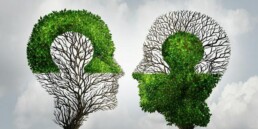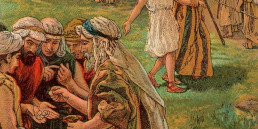As a Coptic (Egyptian Christian) born in the ’80s, I have witnessed firsthand the ravages of ideologies that seek to divide and oppress., In the turbulent landscape of the Middle East, where echoes of ancient conflicts intertwine with modern struggles, the quest for justice and peace takes on new dimensions.
The Truth Behind the Holy Land Question, Is the answer to any Islamic terrorist activity, check out any Islamic Jihadi terrorist statement and you will find that the main ideology has been built based on freeing Palestine from the Occupation before the Isearilie Occupation to the Palestinian land there were no problems in the region other than a few resistant against the Birthish Occpipation in the area, when those resistant groups become Islamic Jihadi terrorists.
Who are the Semitic? and Who are the antisemitic, and where does this expression come from?
The Semitic people, to whom Abraham belonged, trace their origins back to the ancient Near East, specifically to the region known as Mesopotamia, which encompasses modern-day Iraq, Syria, and parts of Turkey and Iran. They are considered to be the descendants of Shem, one of the sons of Noah according to the biblical narrative.
Semitic people or Semites is an obsolete term for an ethnic, cultural or racial group associated with people of the Middle East, including Arabs, Jews, Akkadians, and Phoenicians. The terminology is now largely unused outside the grouping of “Semitic languages” in linguistics, The term comes from the Greek word Sēm, which means “Shem”, the son of Noah in the Bible. Traditionally, people are thought to be descended from Shem.
Abraham, the patriarch of the Semitic people, is a central figure in Judaism, Christianity, and Islam. According to tradition, he was born in Ur of the Chaldeans, a city in ancient Mesopotamia, around the 20th century BCE. Abraham is revered for his faith and obedience to God, as well as for his role as the father of many nations.
God’s promise to Abraham, as mentioned in various religious texts, including the Hebrew Bible (Old Testament) and the Quran, is foundational to the faith of millions around the world. The promise of multiplying his descendants as the stars in the sky and giving them a specific land forever is often interpreted as a covenant between God and Abraham, signifying a special relationship and divine protection for his descendants.
This covenant is significant because it encompasses all of Abraham’s descendants, regardless of lineage. God’s promise to Abraham’s descendants includes both sons Isaac and Ishmael, who are regarded as the progenitors of the Israelites (through Isaac) and the Ishmaelites or Arabs (through Ishmael). This inclusive promise reflects God’s universal love and concern for all humanity, transcending tribal or ethnic boundaries.
The story of Abraham’s faith and God’s covenant with him serves as a foundational narrative in the Abrahamic religions, shaping the identity and beliefs of millions of believers across the globe. It emphasizes themes of faith, obedience, and the universality of God’s love and blessings for all people, regardless of their lineage or background.
God’s promise to Abraham was that “He would multiply his descendants as the stars in the sky. He would be their God and give them a specific piece of land forever.”, But God didn’t discriminate between Abraham’s descendants, God did not mentioned Ishaq descendants Or Ismail descendants, God promised Abraham descendants included Ishaq and Ismail descendants.
In the ancient land known as Palestine, nestled between the Jordan River and the Mediterranean Sea, a tapestry of cultures, religions, and traditions once flourished harmoniously. It was a place where diversity was not only accepted but celebrated—a testament to the rich tapestry of humanity that called this region home.
For centuries, Palestine was a melting pot of civilizations, welcoming travelers, merchants, and seekers of all faiths and backgrounds. From the bustling markets of Jerusalem to the tranquil olive groves of Galilee, the land echoed with the laughter and prayers of its inhabitants, who coexisted in peace and mutual respect.
However, the tranquility of Palestine was shattered by the geopolitical machinations of the early 20th century. As colonial powers vied for control of the region, the once-unified land became a pawn in a larger game of power and influence.
The rise of nationalism and the notion of exclusive entitlements based on religious or ethnic identity threatened to unravel the social fabric of Palestine. The concept of a “chosen people,” wielded as a tool of division and superiority, sowed seeds of discord and resentment among its inhabitants.
Yet, amidst the turmoil and strife, there were moments of resilience and solidarity. Arab Jews, alongside their Christian and Muslim neighbors, formed an integral part of the social and economic fabric of the new Arab World including The Middle East and North Africa. They were not relegated to the margins or confined to ghettos; instead, they thrived as active participants in the mosaic of society.
The winds of change blew with the force of Western imperialism, as the United Kingdom and the United States sought to reshape the geopolitical landscape of the Middle East. Through the establishment of new systems and institutions, they imposed their will upon the region, carving it into fragmented pieces for their own strategic interests.
In this tumultuous era, the United Nations emerged as a beacon of hope, tasked with upholding the principles of justice and equality. Yet, even as the international community looked on, the plight of Palestine remained unresolved, overshadowed by the creation of the state of Israel.
The birth of Israel, heralded as a homeland for the Jewish people, came at a heavy cost for the indigenous inhabitants of Palestine. Dispossession, displacement, and violence marred the once-harmonious landscape, leaving scars that continue to shape the region’s destiny.
In the face of adversity, the spirit of Palestine endures—a testament to the resilience of its people and the enduring bonds of humanity that transcend borders and divisions. As the struggle for justice and equality continues, the echoes of Palestine’s past serve as a reminder of the enduring quest for peace and reconciliation in the Holy Land.
In the annals of history, the saga of Palestine unfolds as a tale of resilience and resistance against the forces of oppression and injustice. Rooted in the ancient soil of the Middle East, Palestine has been a cradle of civilization, nurturing diverse cultures and traditions for millennia.
From the fertile banks of the Jordan River to the sun-kissed shores of the Mediterranean Sea, the land known as Palestine has been a beacon of hope for countless generations. Its cities, steeped in history and tradition, have witnessed the ebb and flow of empires, from the ancient Egyptians to the mighty Babylonians.
But the tranquility of Palestine was shattered by the winds of colonialism and imperialism that swept across the region in the late 19th and early 20th centuries. As European powers vied for control of the Middle East, the fate of Palestine hung in the balance, caught between competing interests and ambitions.
It was against this backdrop of geopolitical upheaval that the Zionist movement emerged, fueled by the dream of establishing a Jewish homeland in Palestine. Ignoring the rights and aspirations of the indigenous Palestinian population, Zionist leaders embarked on a campaign of colonization and dispossession, laying the groundwork for the creation of the state of Israel.
In 1948, amid the chaos of war and displacement, Israel declared its independence, heralding a new era of conflict and struggle in the land of Palestine. Hundreds of thousands of Palestinians were forcibly expelled from their homes, their villages razed to the ground, their history and heritage erased from the landscape.
Since then, the Palestinian people have endured decades of occupation, oppression, and dispossession at the hands of the Israeli state. Their quest for justice and self-determination has been met with relentless violence and repression, as they continue to resist against overwhelming odds.
But amidst the darkness of occupation, the flame of hope still burns bright in the hearts of the Palestinian people. From the stone-throwing youths of the intifadas to the steadfastness of political prisoners in Israeli jails, the spirit of resistance remains unbroken, a testament to the indomitable will of a people determined to reclaim their homeland.
As the world watches, the plight of Palestine remains a stain on the conscience of humanity, a reminder of the unfinished struggle for justice and freedom in the 21st century. It is a story that continues to unfold, with chapters yet to be written, but one thing remains clear: until justice is achieved for the people of Palestine, the quest for peace in the Middle East will remain elusive.
The glaring disparity between the treatment of Jewish immigrants and Palestinian refugees highlights the injustice at the heart of the Israeli state’s policies. While Israel extends open arms to Jews from around the world, granting them citizenship and facilitating their settlement in Palestinian lands, it systematically denies Palestinians their fundamental right of return.
This double standard is a stark reflection of the discriminatory nature of Israeli policies, which privilege one ethnic group while perpetuating the dispossession and marginalization of another. The right of return, enshrined in international law and upheld by numerous United Nations resolutions, affirms the inalienable right of Palestinians to return to their homes and properties from which they were forcibly expelled.
Yet, despite the clear legal and moral imperative to respect this right, Israel continues to obstruct the return of Palestinian refugees, denying them the opportunity to reclaim their rightful place in their homeland. Instead, Palestinian refugees languish in overcrowded camps, denied basic rights and freedoms, while Jewish settlers are provided with financial incentives and state support to establish communities on stolen land.
This flagrant violation of human rights and international law underscores the urgent need for a just and equitable resolution to the Israeli-Palestinian conflict. Any lasting peace settlement must recognize and address the legitimate grievances of the Palestinian people, including their right of return, as a crucial step towards reconciliation and justice for all parties involved.
Until Israel acknowledges and respects the right of return for Palestinian refugees, its claims to democracy and equality will ring hollow, and the dream of a just and lasting peace in the Middle East will remain elusive.
In a world that claims to champion democracy and equality, the hypocrisy of a state based on religious exclusivity is glaring. With no constitution to guide its actions, Israel’s expansionist ambitions know no bounds, as it continues to encroach upon Palestinian territory with impunity, as well this concept often argues for the inclusion of territories such as the West Bank, Gaza Strip, and even parts of neighboring countries like Egypt, Jordan, Lebanon, Syria, Turkey, Iraq and Saudi Arabia. The concept of Greater Israel is also known as the Zionist Plan for the Middle East.
The Islamic ideology and the Zionist Israeli state, both born from the same seed of oppression and fueled by the same sponsor, have wrought havoc upon the land and its people. They stand as symbols of terrorism, their actions a betrayal of the principles of humanity and ethics.
The creation of Israel touted as a homeland for the Jewish people, is a stark reminder of the injustices perpetrated in the name of geopolitical advantage. It is a terrorist entity, masquerading as a divine promise, its very existence a violation of the rights and dignity of humanity before the Palestinian people, it’s Threatening all of the Middle East region.
Every Israeli, compelled to serve in the military, becomes a cog in the machinery of occupation and oppression. Their presence on stolen land is a testament to the illegitimacy of their claim to sovereignty, a stark contrast to the basic human rights denied to the rightful inhabitants of Palestine. The double standard of granting citizenship to Jews from around the world while denying the right of return to Palestinians is a travesty of justice. It is a testament to the selective application of principles, where the oppressor is rewarded while the oppressed are condemned to perpetual displacement and exile.
The symbolic union of the “Lady” and the “Cowboy,” symbolizing the unholy alliance between imperialism and Zionism, has birthed a monstrous offspring—the so-called “most democratic state in the Middle East.” But behind its façade of democracy lies a reality stained with blood and injustice.
As the world grapples with the specter of antisemitism, true justice demands a reckoning with the crimes committed in the name of Zionism. It is not Semitism that is under attack, but the very essence of humanity itself, as the voices of the oppressed are silenced and their suffering ignored.
In the face of such darkness, the light of hope still flickers, fueled by the resilience and determination of those who refuse to be silenced. The struggle for justice in Palestine is not just a battle for land or sovereignty—it is a fight for the soul of humanity, a testament to the enduring spirit of resistance in the face of oppression.




